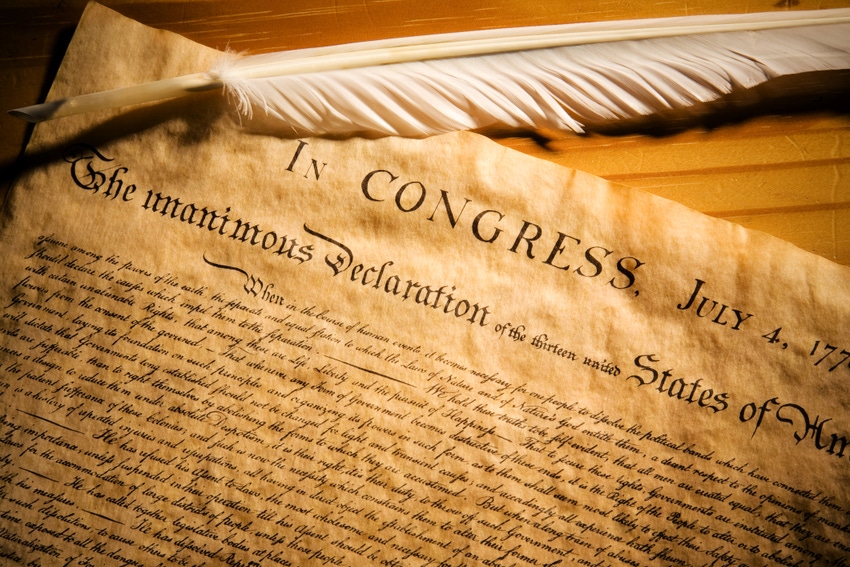
As we celebrate Independence Day, it is important to remember the vital role farmers played in our nation’s founding. George Washington, the Father of our Country, considered himself first and foremost a farmer as did Thomas Jefferson, the principal author of the Declaration of Independence.
There is a well-known quote from Washington: “Agriculture is the most healthful, most useful, and most noble employment of man.”
And there is this quote attributed to Jefferson, made to John Jay in 1785: “Cultivators of the earth are the most valuable citizens. They are the most vigorous, the most independent, the most virtuous, and they are tied to their country and wedded to its liberty and interests by the most lasting bonds. As long, therefore, as they can find employment in this line, I would not convert them into mariners, artisans, or anything else.”
Jefferson and Washington are two of our country’s most-famous founders, but my favorite founder is John Hart, a farmer from New Jersey who signed the Declaration of Independence. He and I share the same name, and he was a true patriot.
When John Hart and others signed the Declaration of Independence, they committed themselves to its profound closing sentence: “And for the support of this Declaration, with a firm reliance on the protection of divine providence, we mutually pledge to each other our lives, our fortunes and our sacred honor.”
In a July 1, 2014 column penned for the website Centrraljersey.com, Stanley Vitello, professor emeritus at Rutgers University, noted the important role farming played in Hart’s life. Vitello shares a quote from Benjamin Rush, another signer of the Declaration, calling Hart “a plain, honest, well-meaning farmer, with little education, but with good sense and virtue enough to pursue the true interest of his country.”
Hart was born in Hopewell Township, N.J. on Nov. 5, 1713. Vitello notes that in 1739 Hart purchased a 193-acre plantation in the northern part of Hopewell Township, which is now Hart Avenue in the Borough of Hopewell. According to Vitello, Hart became one of the most prosperous farm and mill owners in Hopewell Township, overseeing 600 acres of land.
In his column, Vitello emphasized that “no patriot endured a greater degree of suffering without any quest for personal gain than John Hart.” After signing the Declaration on July 2, 1776, Hart was hunted down by the British and marked a traitor. He was offered a pardon if he reversed his position on independence, but he refused.
To avoid capture by the British, Hart hid in caves in the Sourland Mountains. During this time, Hart’s farm was ravaged by British and Hessian troops. Vitello notes that when Hart returned home, he found out that his sickly wife Deborah had died on Oct. 8, 1776 at the age of 55. Vitello says Hart was heartbroken and exhausted and died from kidney stones at the age of 66 on May 11, 1779.
There is much to admire about John Hart. And as we mark Independence Day, it’s important to remember the ultimate sacrifice Hart and other patriots made for our liberty.
About the Author(s)
You May Also Like






